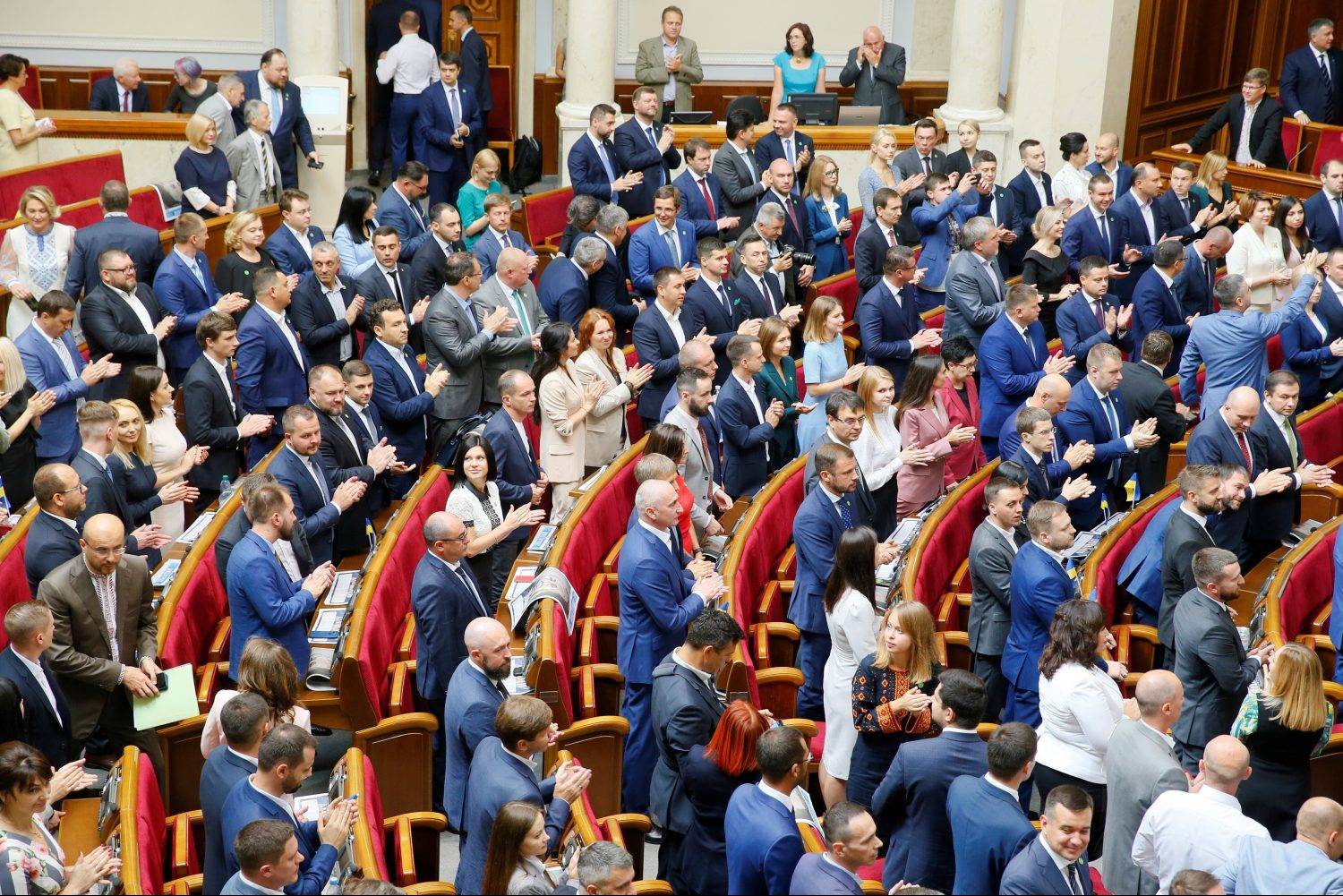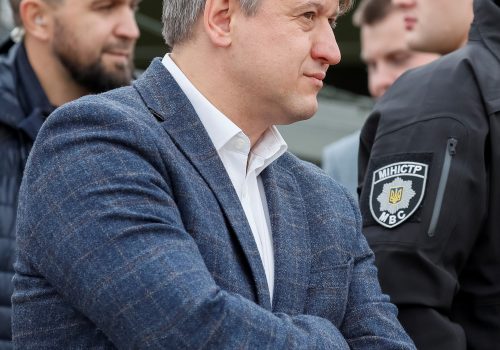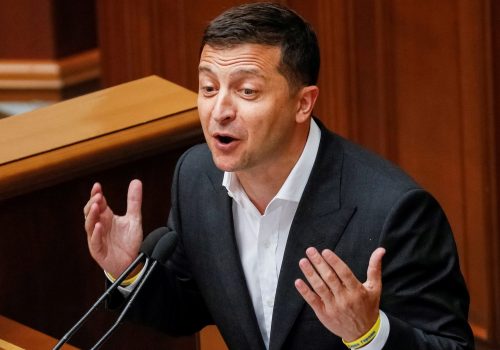Ukraine’s new parliament has been in session for more than fifty days and it’s been operating at a frantic pace. The ruling party seems to value speed over substance. It’s hard to keep up with the parliament, which has passed about 70 bills since taking office, so we’ve culled together a list of the best and worst based on conversations with MPs, judges, attorneys, economists, and other experts.
The best things the Rada has done so far:
- Passed a package of progressive anti-corruption laws that will protect whistleblowers, relaunch the totally ineffective and pointless National Agency for the Prevention of Corruption, give independent wiretapping powers to the National Anti-corruption Bureau of Ukraine (NABU) and the State Bureau of Investigations, and limit the High Anti-Corruption Court’s jurisdiction to cases from NABU and the Specialized Anti-corruption Prosecutor’s Office.
- Restarted the privatization process: The Rada approved a bill that allows for the privatization of Ukraine’s bloated state-owned enterprises, except for strategic ones. The government has agreed to a list of 800 state-owned enterprises that will be put up for sale.
- State property lease law: A new law creates a unified national database of all state property for lease. Businesses will be able to easily locate available property and bid on them using the ProZorro system. In addition, renewals are no longer automatic, which should result in greater competition and more state revenue.
- Law on concessions: Investors and the state can now team up to modernize and improve state property or infrastructure that is eventually transferred to the state. The investor pays for the repair costs and gets to operate the port, highway, airport, etc. and make income from operating it for a fixed period of time.
- Lowering the threshold on public purchases through the ProZorro system: All public purchases for 50,000 hryvnia (about $2,000) or more must go through Ukraine’s award-winning online public procurement system.
- Liberalization of the construction industry: The law reduces the number of permits required to build and requires a government ministry to put the permitting process online. Putting the process online will force bureaucrats to take responsibility for any delays in the approval process. The website will show applicants where the authorities are in the approval process in real time. In short, it increases transparency and decreases opportunities for bribery.
- Regulating heavy trucks on roads: Ukraine’s roads are in terrible condition. One journey I took in June should have taken an hour but took three instead after we navigated asteroid sized holes in central Ukraine. The Rada has approved a bill that puts a system into place that will weigh trucks. Many complain that truck drivers intentionally overload their trucks, which ruins the roads. If successful, this should save billions of hryvnia in road construction.
Stay updated
As the world watches the Russian invasion of Ukraine unfold, UkraineAlert delivers the best Atlantic Council expert insight and analysis on Ukraine twice a week directly to your inbox.
The worst things the Rada has done
- MP Alexander Dubinsky tried to launch a special investigatory committee into the management of the National Bank of Ukraine from 2014-2019. Dubinsky is tied to PrivatBank’s former co-owner Ihor Kolomoisky and this was yet another brazen attempt from the oligarch to put pressure on the NBU, which nationalized PrivatBank in 2016. To say that this politically motivated move raised eyebrows is an understatement. Fortunately, it’s on hold and the West is watching.
- General prosecutor’s reform. The new prosecutor general helped write the 2014 anti-corruption legislation and enjoys a strong reputation among anti-corruption watchdogs. However, giving him carte blanche authority, as the Rada has done, is a mistake. Anyone can misuse it. Or he can be replaced by someone with less than sterling credentials. Also troubling, in the infamous July phone call with US President Donald Trump, President Zelenskyy’s characterized Ruslan Ryaboshapka as “100% my person, my candidate.”
- Zelenskyy’s attempts at judicial reform will fail just like his predecessors. The new law does not reform the High Council of Justice, which is the body that hires, fires, and disciplines judges. Any other changes are cosmetic. The law will reduce the number of Supreme Court judges from 200 to 100, and current Supreme Court justices have expressed concern that only loyal ones will remain on the bench. They say there’s simply too much work for a smaller court to handle. While some of the best activists in the country have tried to put a positive spin on the new law, I’m not impressed. Until Ukraine’s courts change, don’t expect investors to take the country seriously. Prime Minister Oleksiy Honcharuk can set absurdly high targets for economic growth and FDI, but no one in the West will put money in Ukraine until it’s safe to invest.
- Removing parliamentary immunity. While praised to the nines by the West, it’s far too soon to declare victory for this incomplete reform. All the Rada did was pass a law that removed one sentence from the Constitution. Three other laws that govern parliamentary immunity haven’t been changed. Lawyers say this is only the first step to cancel parliamentary immunity.
- Presidential impeachment: Another Zelenskyy gimmick that sounds good on paper but in reality it’s fake. Experts tell me that the procedure is vague and that not much has been added to what the Constitution already sets out. It was also approved in violation of Rada procedure; no MPs were allowed to submit amendments in the second reading of the bill.
Melinda Haring is the editor of the UkraineAlert blog at the Atlantic Council and a senior fellow at the Foreign Policy Research Institute. She tweets @melindaharing.
Further reading
The views expressed in UkraineAlert are solely those of the authors and do not necessarily reflect the views of the Atlantic Council, its staff, or its supporters.

The Eurasia Center’s mission is to enhance transatlantic cooperation in promoting stability, democratic values and prosperity in Eurasia, from Eastern Europe and Turkey in the West to the Caucasus, Russia and Central Asia in the East.
Follow us on social media
and support our work
Image: Ukrainian lawmakers attend the first session of newly-elected parliament in Kyiv, Ukraine August 29, 2019. REUTERS/Gleb Garanich




